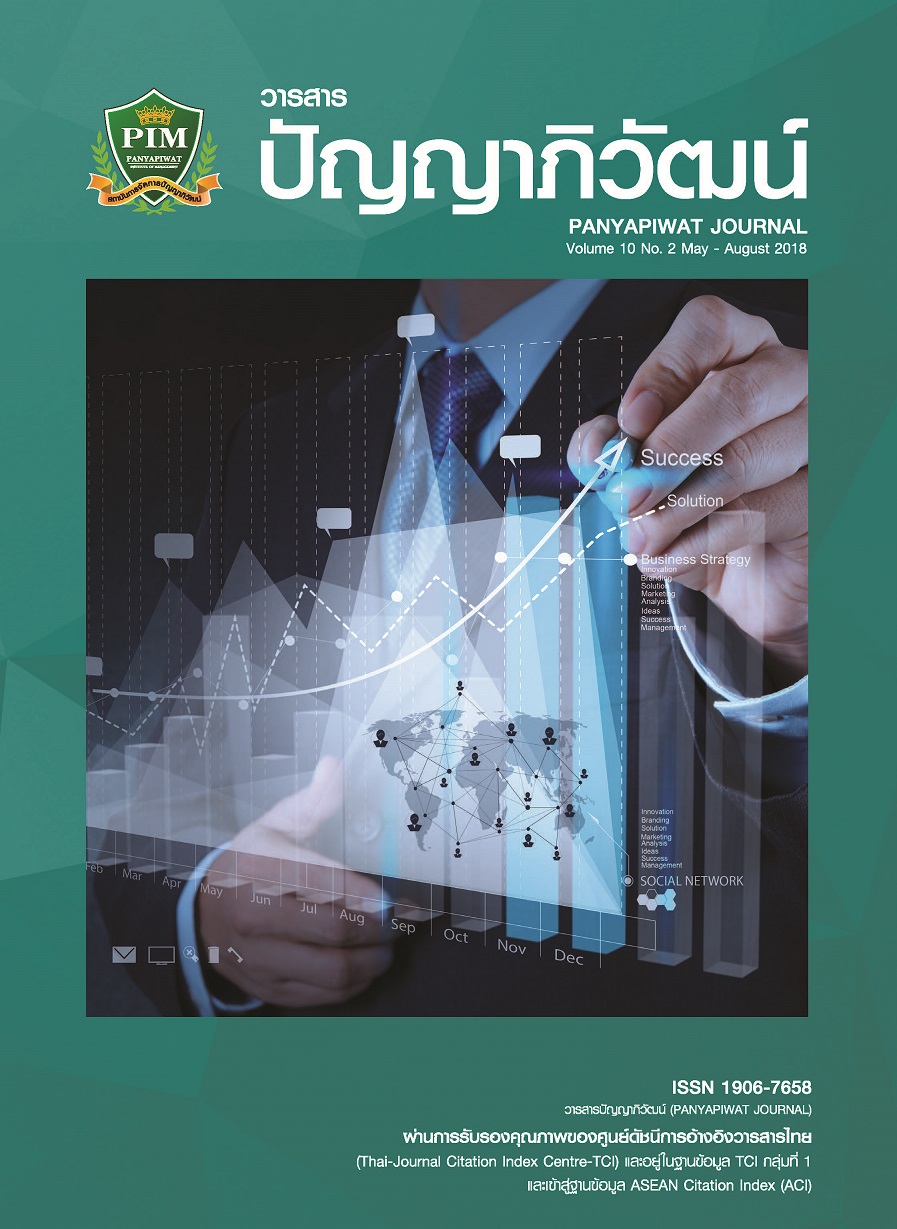บทวิเคราะห์นโยบายการอุดมศึกษา: ย้อนมองสองทศวรรษนโยบายมหาวิทยาลัยในกำกับของรัฐ
Main Article Content
บทคัดย่อ
ความพยายามที่จะนำมหาวิทยาลัยไทยออกจากระบบการบริหารงานด้วยระบบราชการไปสู่ระบบการบริหารแบบในกำกับของรัฐนั้น เดิมเป็นความริเริ่มและผลักดันโดยผู้นำและบุคลากรในแวดวงการอุดมศึกษา อย่างไรก็ตามบทวิเคราะห์นี้ชี้ให้เห็นว่า เนื่องจากบริบทแวดล้อมในแต่ละช่วงของการพัฒนานโยบายนี้ได้เปลี่ยนไป ส่งผลให้แนวคิดตั้งต้นของมหาวิทยาลัยในกำกับของรัฐถูกปรับเปลี่ยนไปตามแนวคิดที่ทรงอิทธิพลในเวลาต่อๆ มา ด้วยเหตุนี้จึงนำไปสู่การต่อต้านและขัดแย้งของกลุ่มผลประโยชน์ทั้งหลายรวมถึงกลุ่มที่เรียกร้องให้มีการเปลี่ยนระบบในตอนแรกบทวิเคราะห์นี้ใช้กรอบความคิดของ Vidovich โดยมุ่งวิเคราะห์วิวัฒนาการของนโยบาย โดยศึกษาแนวคิดต่างๆ (ideologies) ที่เป็นฐานคิดหรือกำหนดทิศทางนโยบาย บทบาทของรัฐชาติ (nation state) และผลกระทบต่อมหาวิทยาลัยท้ายสุดบทความได้สรุปประเด็นที่ได้จากการใช้กรอบความคิดของ Vidovich ในการวิเคราะห์ซึ่งทำให้เห็นวิวัฒนาการ นโยบายนี้รวมทั้งผลกระทบของนโยบายดังกล่าวต่อมหาวิทยาลัยไทย
Article Details
“ข้าพเจ้าและผู้เขียนร่วม (ถ้ามี) ขอรับรองว่า บทความที่เสนอมานี้ยังไม่เคยได้รับการตีพิมพ์และไม่ได้อยู่ระหว่างกระบวนการพิจารณาลงตีพิมพ์ในวารสารหรือแหล่งเผยแพร่อื่นใด ข้าพเจ้าและผู้เขียนร่วมยอมรับหลักเกณฑ์การพิจารณาต้นฉบับ ทั้งยินยอมให้กองบรรณาธิการมีสิทธิ์พิจารณาและตรวจแก้ต้นฉบับได้ตามที่เห็นสมควร พร้อมนี้ขอมอบลิขสิทธิ์บทความที่ได้รับการตีพิมพ์ให้แก่สถาบันการจัดการปัญญาภิวัฒน์หากมีการฟ้องร้องเรื่องการละเมิดลิขสิทธิ์เกี่ยวกับภาพ กราฟ ข้อความส่วนใดส่วนหนึ่งและ/หรือข้อคิดเห็นที่ปรากฏในบทความข้าพเจ้าและผู้เขียนร่วมยินยอมรับผิดชอบแต่เพียงฝ่ายเดียว”
เอกสารอ้างอิง
Ball, S. J. (1994). Education reform: A critical and post-structural approach. Buckingham: Open University Press.
Barnes, J. (1999). Funding and university autonomy. In M. Henkel & B. Little (Eds.). Changing relationships between higher education and the state. (pp. 162-190). London: Jessica Kingsley Publishers.
Bottery, M. (2000). Education, policy and ethics. London: Continuum.
Bunbongkarn, S. (2004). The military and democracy in Thailand. In R. J. May & V. Selochan (Eds.), The military and democracy in Asia and the Pacific. (pp. 47-58). Canberra: ANU E Press.
Cerny, P. (1990). The changing architecture of politics: Structure, agency and the future of the state. London: Sage.
Clarke, J. & Newman, J. (1997). The managerial state. London: Sage.
Currie, J. & Newson, J. (1998). Universities and globalisation : Critical perspectives. Thousand Oaks, California: Sage.
Dale, R. & Robertson, S. (2002). The varying effects of regional organisations as subjects of globalization of education. Comparative education review, 46(1), 10-36.
Dale, R. (1997). The State and the governance of education: An analysis of the restructuring of the state-education relation. In A. Halsey, P. Brown, H. Lauder and A. Stuart Wells (Eds.), Education, culture, economy and society.(pp. 273-281). Oxford: Oxford University Press.
Dale, R. (1999). Specifying globalisation effects on national policy: A focus on the mechanisms. Journal of education policy, 14(1), 1-17.
Green, D. (1997). Education, globalisation and the nation state. London: Macmillan Press.
Hallinger, P. & Kantamara, P. (2000). Educational change in Thailand: Opening a window onto leadership as a cultural process. School leadership & management, 20(2), 189-205.
Hofstede, G. (1997). Cultures and organizations: Software of the mind. New York: McGraw-Hill.
Hoksuwan, P. (2000, November 25). Autonomous university: Who have been affected? Matichon Daily News, p. 6. [in Thai]
Intagoon, K. (2014). The influence of neo liberalism with autonomous university. MA Thesis, Thammasat University. [in Thai].
Kirtikara, K. (2004). Transition from a university under the bureaucratic system to an autonomous university: Reflections on concepts and experience of the King Mongkut’s University of Technology Thonburi.Bangkok: Office of the Education Council.
Lorthirathorn, A. (2006). Special report: Autonomous university. Retrieved October 15, 2016, from https://mgronline.com/politics/detail/9490000151153 [in Thai]
Ministry of Public Health. (2008). Public health statistics A.D. 2007. Bangkok: Bureau of Policy and Strategy. [in Thai]
Nagapriya. (2004). Exploring karma and rebirth. Birmingham: Wind horse Publications.
Olssen, M., Codd, J. & O’Neill, A. (2004). Education policy: Globalization, citizenship and democracy. London: Sage.
Ozga, J. (2000). Policy research in education settings: Contested terrain. Buckingham: Open University Press.
Robertson, S. & Dale, R. (2000). Competitive contractualism : A new social settlement in New Zealand. In D. Coulby, R. Cowen & C. Jones (Eds.), Education in times of transition. (pp. 116-131). London: Kogan Page.
Sribunsong, S. (2005). A century of Thai higher education: A sustainable development? Ramkhamhaeng University Journal Humanities Edition, 22(1), 52-85. [in Thai]
Taylor, S., Rizvi, F., Lingard, B. & Henry, M. (1997). Education policy and the politics of change. London: Routledge.
Thaipublica. (2012). Autonomous university: From the beginning to the present. Retrieved November 12, 2015, from https://thaipublica.org/2012/10/autonomous-university1/ [in Thai]
The Office of the Permanent Secretary, Ministry of University Affairs. (1998). Principles and practices of autonomous universities. Bangkok: Chulalongkorn University Printing House. [in Thai]
Trowler, P. (1998). Education policy: A policy sociology approach. East Essex: Guildredge Social Policy.
Vidovich, L. (2002). Expanding the toolbox for policy analysis: Some conceptual and practical approaches (Occasional paper series No. 2). Hong Kong: City University of Hong Kong.


